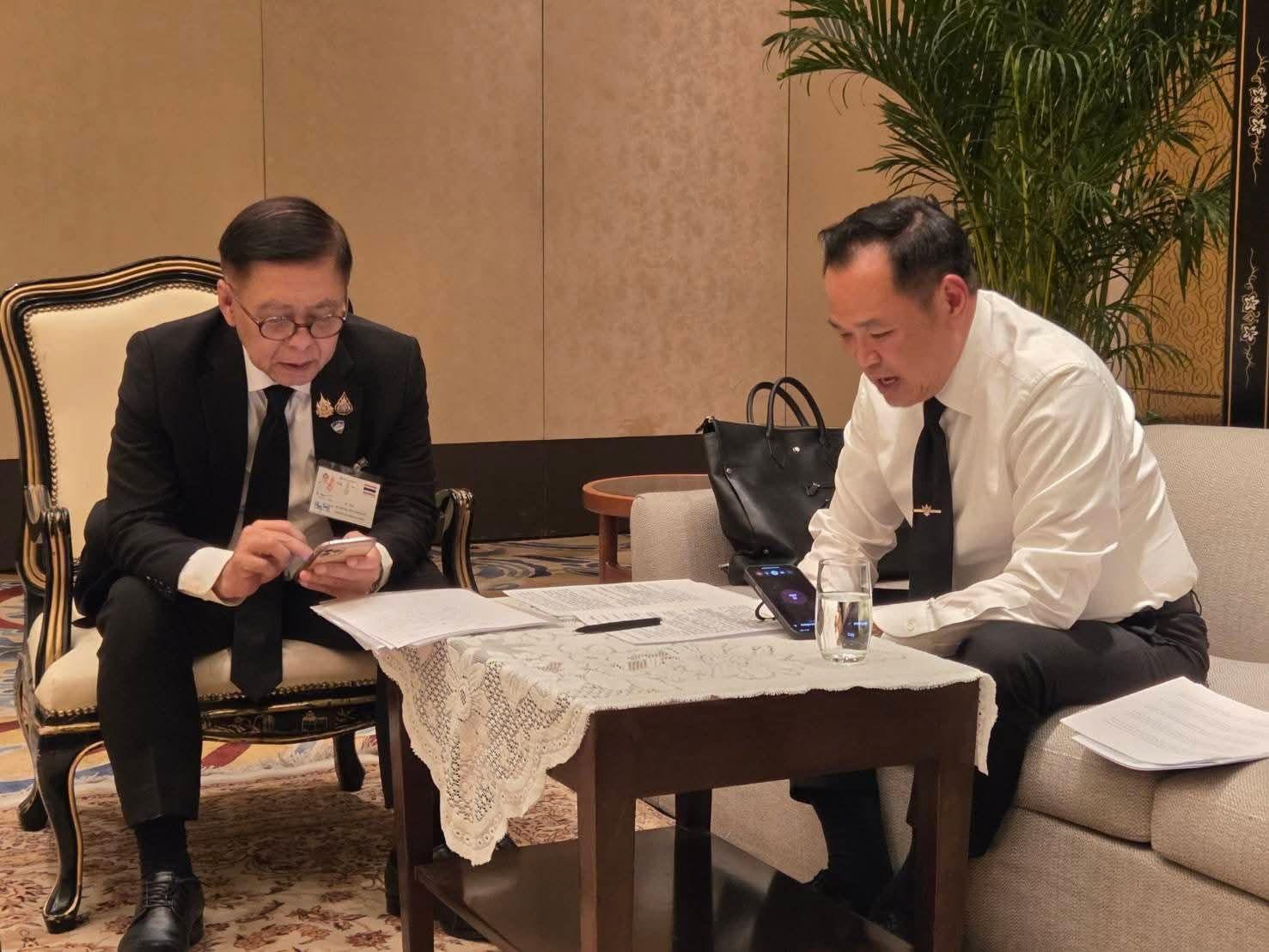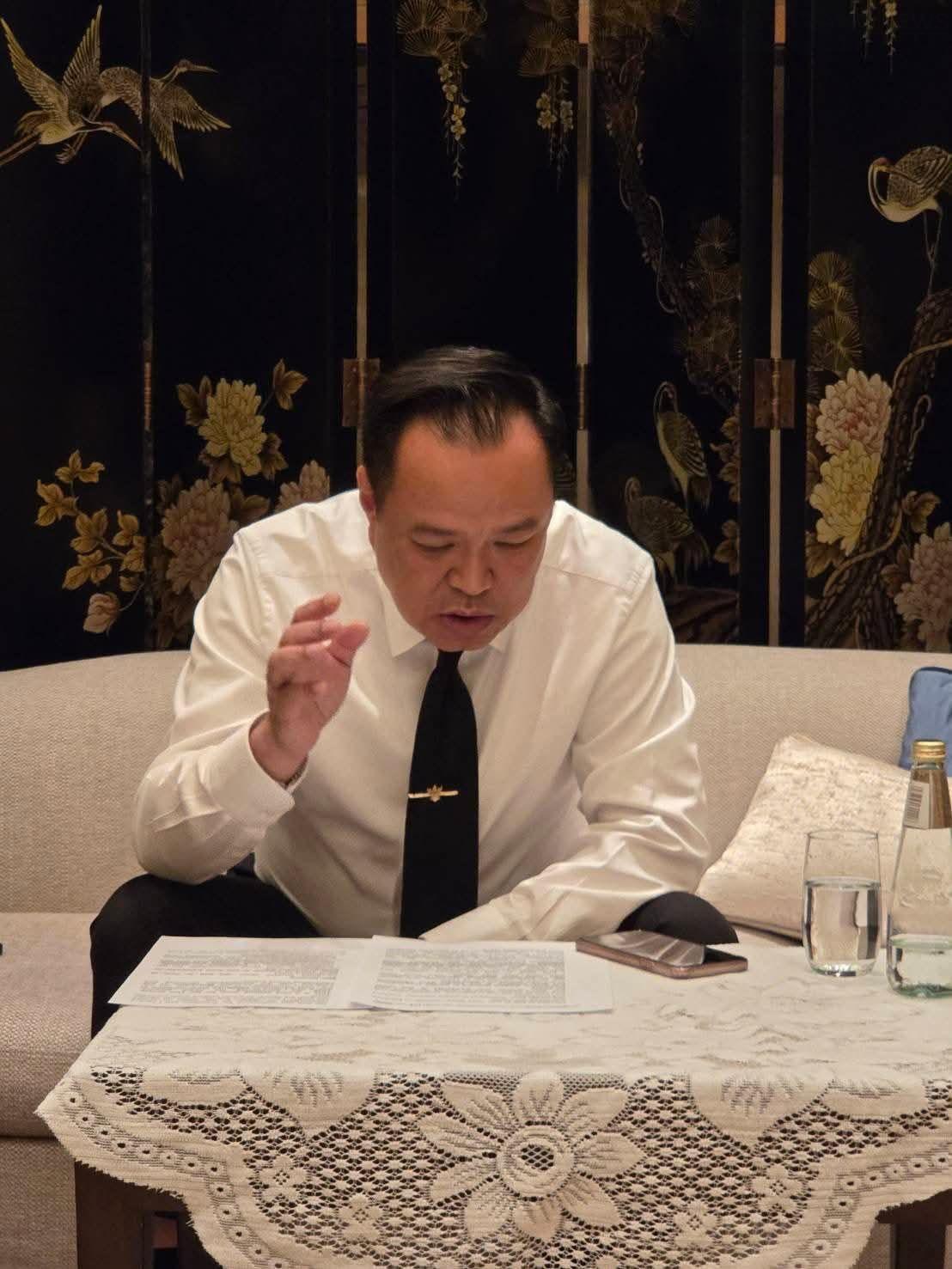In an escalation of diplomatic fallout from renewed border hostilities, the United States has suspended negotiations on a bilateral reciprocal tariff agreement with Thailand, linking the pause directly to Bangkok’s recent decision to halt implementation of a U.S.-backed peace declaration with neighboring Cambodia. The Thai Ministry of Foreign Affairs confirmed the development on Saturday.
Foreign Ministry spokesperson Nikorndej Balankura announced that the U.S. Deputy Trade Representative notified Thailand late Friday that talks on finalizing the trade framework, designed for reducing tariffs on key Thai exports like electronics and agricultural products, would be “temporarily suspended.” According to Balankura, the U.S. letter specified that negotiations could resume onl…
In an escalation of diplomatic fallout from renewed border hostilities, the United States has suspended negotiations on a bilateral reciprocal tariff agreement with Thailand, linking the pause directly to Bangkok’s recent decision to halt implementation of a U.S.-backed peace declaration with neighboring Cambodia. The Thai Ministry of Foreign Affairs confirmed the development on Saturday.
Foreign Ministry spokesperson Nikorndej Balankura announced that the U.S. Deputy Trade Representative notified Thailand late Friday that talks on finalizing the trade framework, designed for reducing tariffs on key Thai exports like electronics and agricultural products, would be “temporarily suspended.” According to Balankura, the U.S. letter specified that negotiations could resume only after Thailand reaffirms its commitment to the “Thai-Cambodian Joint Declaration,” signed just last month in Kuala Lumpur, Malaysia.
The declaration, which Thailand has downplayed as a mere “joint statement” rather than a full peace accord, called for de-mining operations, withdrawal of heavy weapons from border areas, and the release of detained soldiers.
Thailand’s suspension of the agreement, announced on November 10th, came in the wake of a landmine explosion near the disputed border in Sisaket province that severely injured two Thai soldiers, one losing a leg and the other suffering chest pain. Bangkok accused Phnom Penh of violating the declaration by planting fresh explosives, despite prior commitments to clear existing mines and avoid new installations. Prime Minister Anutin Charnvirakul, who personally inspected the site, described the incident as a “serious breach” and ordered an immediate halt to all related measures, including the planned release of 18 Cambodian prisoners of war captured during earlier clashes. “The agreement we had in place to move toward peace has ended,” Anutin declared during a visit to frontline troops.

Cambodia has categorically denied the allegations, with its Foreign Ministry expressing “grave concern” over Thailand’s actions and reaffirming its dedication to the declaration. Phnom Penh described the landmine claims as “baseless” and accused Thai forces of provocative maneuvers, including recent gunfire exchanges that killed at least one Cambodian civilian and allegedly wounded three others in Prey Chan village on November 12. The Cambodian government has evacuated hundreds of residents from border areas as a precaution, while urging ASEAN mediation to prevent further violence.
This latest crisis traces its roots to a century-old border dispute stemming from the 1904 and 1907 Franco-Siamese treaties, which delineated frontiers between colonial French Indochina (including Cambodia) and the Kingdom of Siam (modern Thailand). Ambiguities in these maps, particularly around ancient Khmer temples like Preah Vihear and Ta Muen Thom perched on the Dangrek Mountains, have fueled intermittent clashes for decades. The International Court of Justice (ICJ) ruled in 1962 that Preah Vihear belongs to Cambodia, a decision reaffirmed in 2013 regarding surrounding lands, though Thailand has historically resisted full ICJ jurisdiction and favored bilateral resolutions.

Tensions boiled over in 2025 with skirmishes in the Emerald Triangle region on May 28th, escalating into five days of intense fighting starting July 24th, the deadliest border conflict in over a decade. Airstrikes, artillery exchanges, and ground assaults left at least 38 dead, including soldiers and civilians, and displaced more than 300,000 people. Calls with Thai and Cambodian leaders led to an “immediate and unconditional ceasefire” on July 28th, mediated by Malaysia as ASEAN chair. Trump later presided over the October 26th signing of the Joint Declaration in Kuala Lumpur alongside Malaysian Prime Minister Anwar Ibrahim, Thai Prime Minister Anutin, and Cambodian Prime Minister Hun Manet. Trump hailed it as one of “eight conflicts” he had resolved, though critics argue the pact imposed a hasty truce without addressing core territorial claims.
The U.S. has positioned itself as a key broker in the dispute, viewing regional stability as vital to countering Chinese influence in Southeast Asia. Trump’s administration tied progress on the peace process to economic incentives, including the tariff framework announced last month. Under the proposed deal, the U.S. would maintain a 19% tariff on most Thai imports but identify sectors for reductions or zero-duty access, potentially boosting Thailand’s $50 billion annual exports to America.
Thai officials expressed “disappointment” at the suspension, with Anutin reiterating during a Friday call with Trump as we reported here that border security is a “bilateral matter” separate from trade. Anutin reportedly pressed for tariff cuts, to which Trump responded that relief could come swiftly if de-mining resumed promptly.
The freeze in talks arrives at a precarious moment for Thailand’s economy, already strained by the border disruptions and global supply chain issues. Prime Minister Anutin, who assumed office in September amid domestic political turbulence, including the suspension of his predecessor over a leaked call with Cambodian officials, has pledged to pursue free trade agreements aggressively. His government has invited ASEAN observers to verify the landmine claims and convened the National Security Council to assess next steps.
As evacuations continue and rhetoric sharpens, analysts warn of a fragile standoff. “The declaration was a band-aid on a deep wound,” said a regional security expert at the Council on Foreign Relations. “Without ICJ involvement or a comprehensive demarcation, these flare-ups risk derailing not just bilateral ties but U.S.-ASEAN economic momentum.”